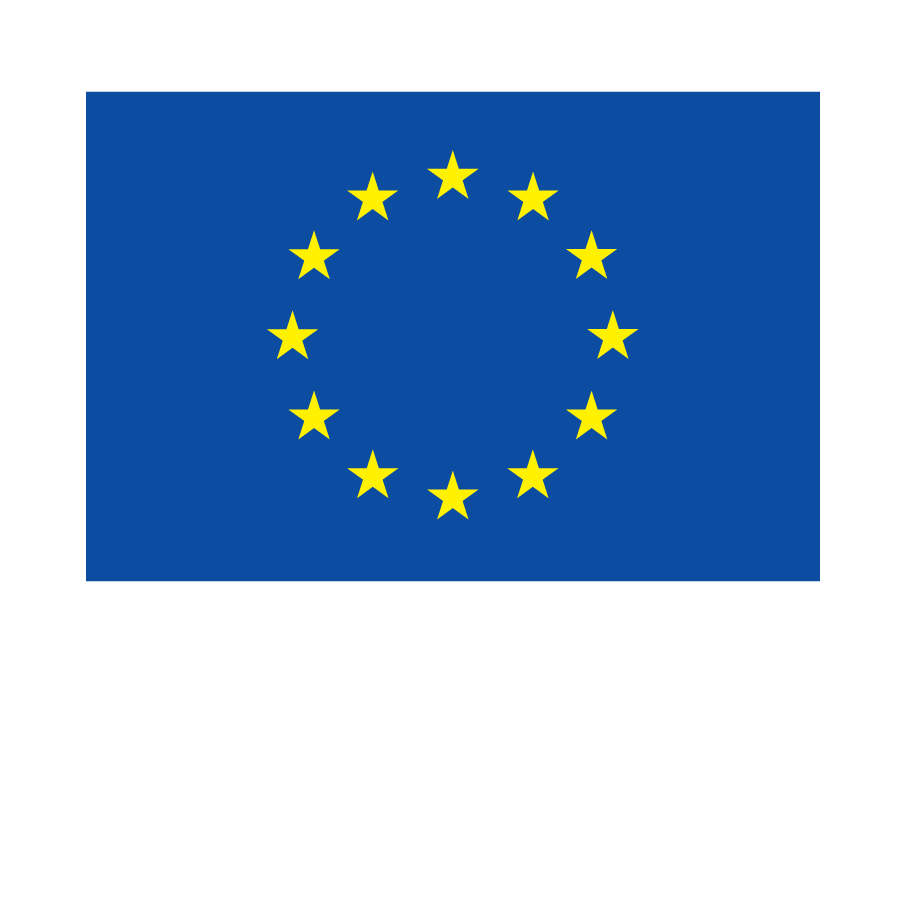Share
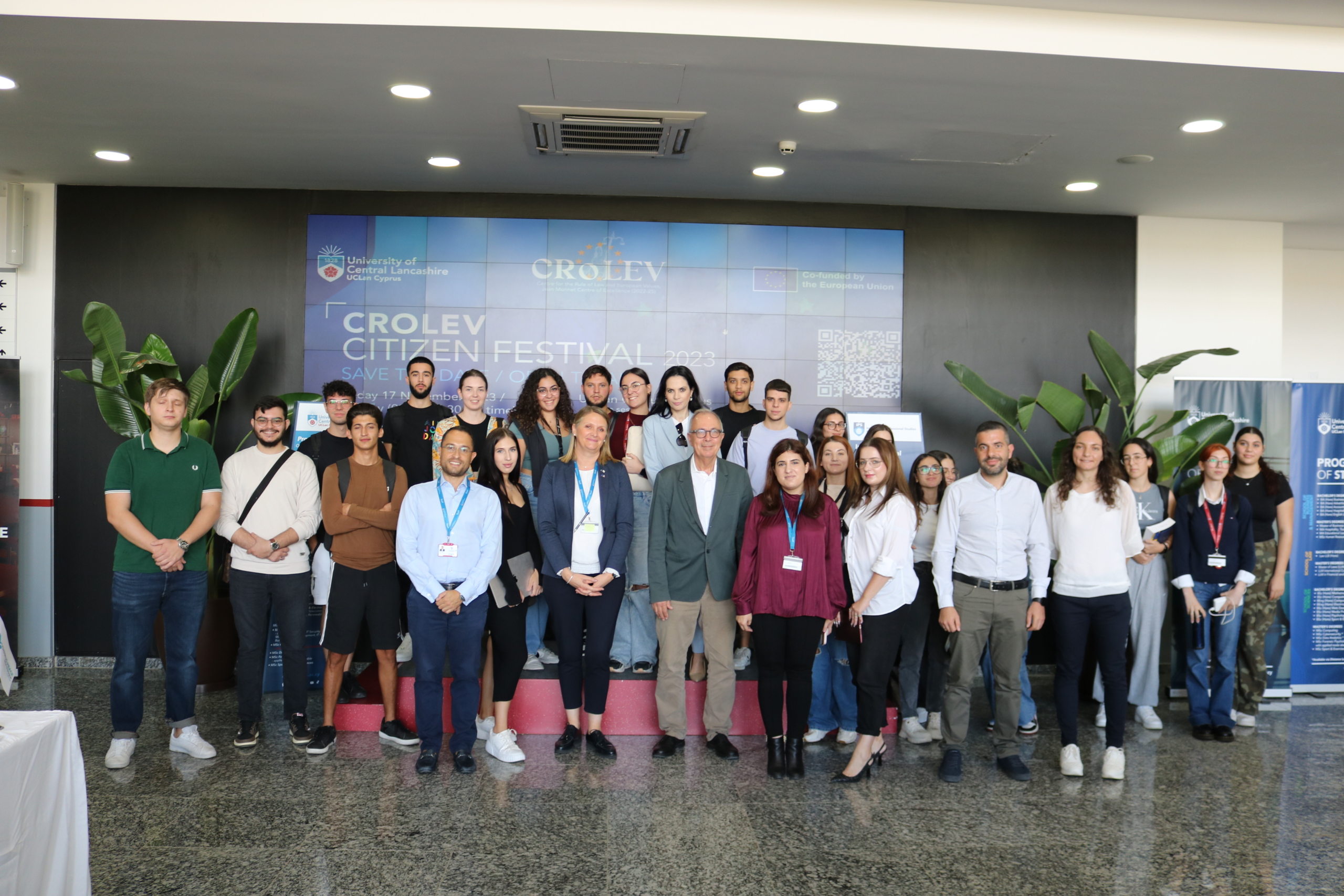
On November 17th, 2023, the Jean Monnet Centre of Excellence for the Rule of Law and European Values (CRoLEV) at the University of Central Lancashire in Cyprus (UCLan Cyprus) organised a Citizen Festival. The conference was hosted at the UCLan Cyprus campus in Pyla, Larnaca and individual events could be joined by remote guests virtually.
Participatory Democracy and Active Citizenship Forum
The day started with a plenary session and discussion on “Democracy in action in view of the European Elections of June 2024” led by Mr. Andreas Kettis, Head of the European Parliament Liaison Office in Cyprus accompanied by a video from MEP Loucas Fourlas, Rapporteur of the European Year of Skills 2023. During this session, Mr. Kettis highlighted the importance of voting in the upcoming European Elections on 9 June 2024 and had a discussion with the students as to how the EU could reach out to young people and encourage them to vote. Moreover, the students and their tutors had the opportunity to ask questions as well as express their concerns, if any, as to the impact of the elections on the Republic of Cyprus. The session was moderated by Prof. Loukas Glyptis, Head of School of Business and Management at UCLan Cyprus.
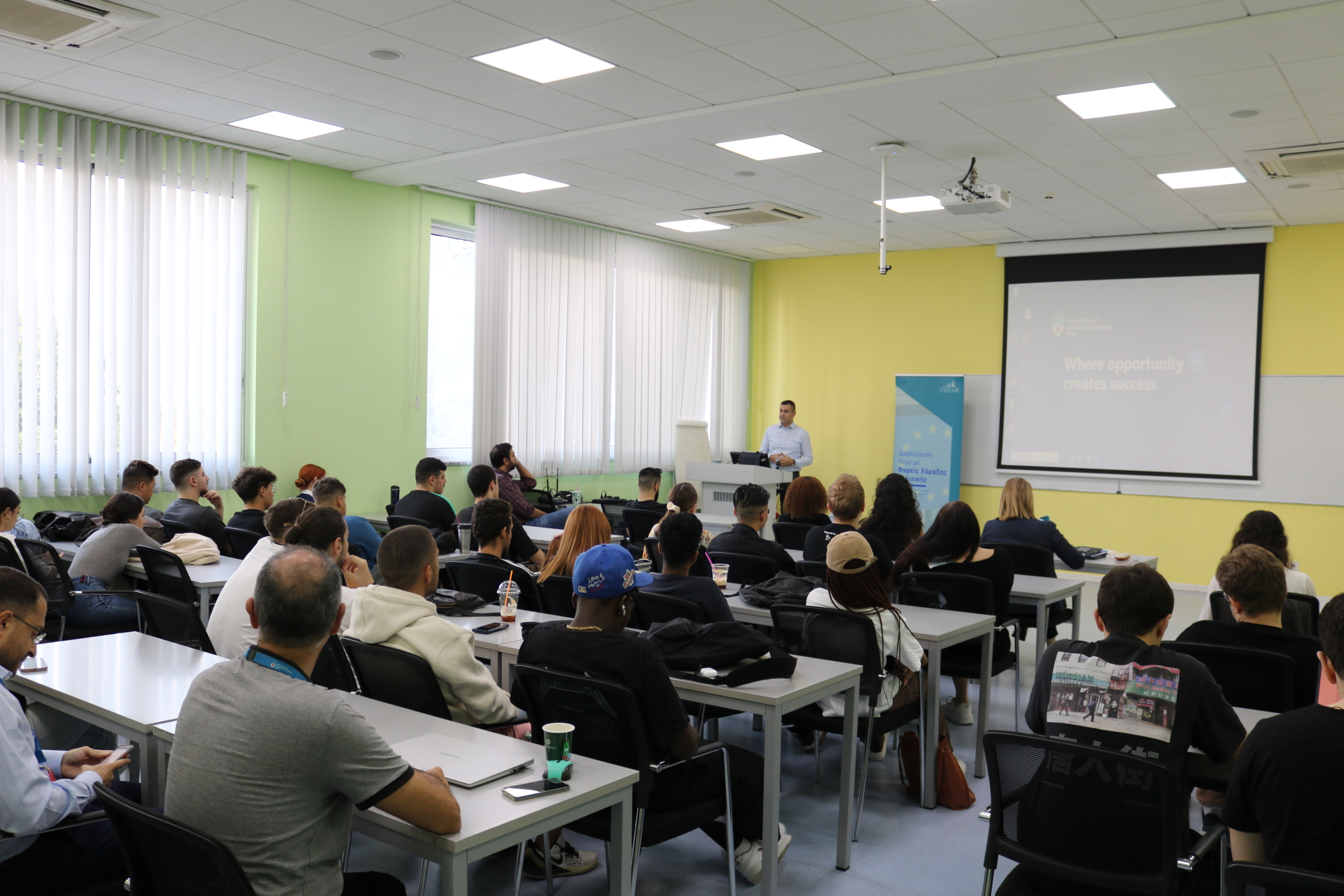
Workshop on the Rule of Law, Democracy, Corruption, and Media Pluralism
As part of the conference, a Workshop on the Rule of Law, Democracy, Corruption, and Media Pluralism took place from 11:00-13:00. The workshop consisted of a plenary session and discussion with Dr. Alexandra M. Uibariu, CRoLEV post-doctoral Fellow, Mr. Eric Shukiouroglu, Vice President of OPEK and Mr. Kyriakos Pieridis, AEJ (Association of European Journalists) Media Freedom Representative, followed by youth proposals to policymakers and the media. The session was moderated by Dr. Maria Tatsiou, Lecturer in Financial and Corporate Law, School of Law, UCLan Cyprus.
On behalf of CRoLEV, Dr. Alexandra M. Uibariu drew participants’ attention to the enduring decay of both new and established democracies and the rule of law, caused by a combination of an increase in authoritarianism; a re-emergence of far-right populism; the deepening of social and economic inequalities; the occurrence of economic crises, refugee crises, natural emergencies, and wars, all of which have witnessed the extensive use of emergency powers far beyond the remits of the respective crises and which have oftentimes resulted in violations of human, civil, and political rights. Unsurprisingly, the aforementioned have caused many to be dissatisfied with democracy and their elected and appointed representatives, and – as a result – to be increasingly disengaged in democratic processes ranging from democratic dialogue, to protest, and to voting. Such disengagement has allowed appointed and elected representatives alike to pursue private and elite interests during their professional duties and to become increasingly unaccountable and unresponsive to the needs of the citizenry. In our fight to reverse this democratic decay, a free and independent media is crucial. Meaningful democracy requires that citizens have opportunities to inform and formulate their preferences as a precondition to political action. Without free access to independent information, citizens cannot make educated decisions about how they are ruled, or hold educated opinions about governmental abuses of power. Mr. Kyriakos Pieridis and Mr. Eric Shukiouroglu both shared their valuable experiences concerning present threats to the media, the efforts to enable transparency, and the fight against corruption.
The audience proposed that in order to enable transparency, better protect the media, and overall encourage greater democratisation, one should seek to make civic education an integral part of the curriculum, whereby there is a focus on critical thinking, civil action, and knowledge of human, civic and political rights – all of which should enable individuals to become responsible citizens, who are committed to democratic participation, and are able to keep their elected and appointed representatives accountable when they surpass the legal limits of their power or otherwise abuse public office. Additionally, it was suggested that the laws on the establishment of media institutions should be reviewed as a means of enabling better transparency and lessening the extent to which partisan interests can be promoted via the use of far-reaching channels.
Finally, the Together EU platform was introduced. Together EU seeks to form a virtual community of individuals who are politically active, and who wish to share their knowledge, learn new skills, and encourage others to vote in the forthcoming 2024 EU Parliament elections.
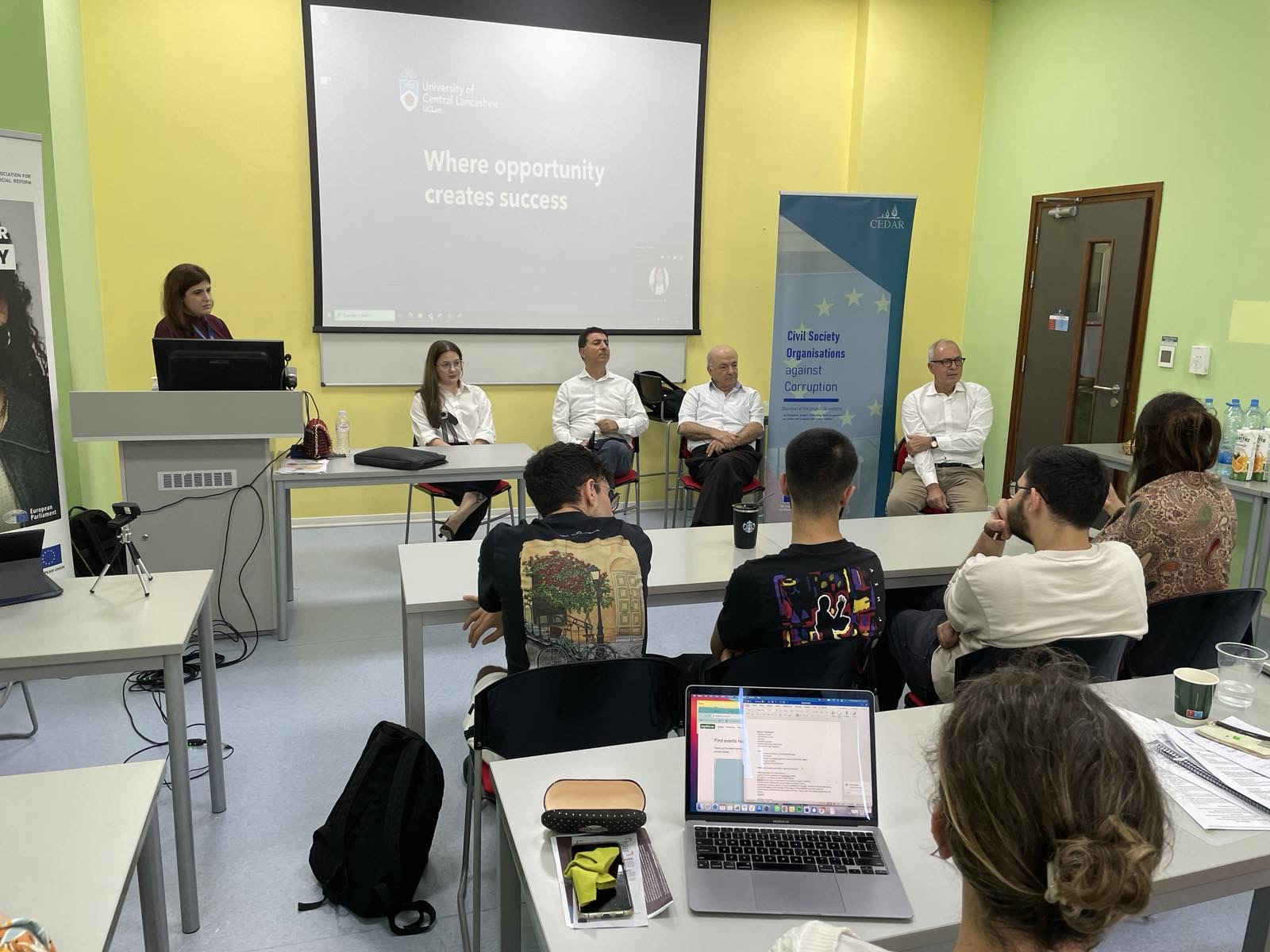
Civil Society Forum on Active Citizenship
As part of the conference, a Civil Society Forum on Active Citizenship, moderated by Prof. Stéphanie Laulhé Shaelou, Professor of European Law and Reform, Head and Director of CRoLEV, School of Law, UCLan Cyprus and ICLAIM Founding Director, brought together civil society actors and academic research organisations. Presentations were delivered on behalf of CRoLEV, the Cyprus Peace and Dialogue Centre (CPDC), the EMBRACE Project, the Human Rights Platform (HRP), ICLAIM, InPeace, and Civic Space, on:
- “The visualisation of the Rule of Law and European Values. Some aspects” by Dr. Alexandra Uibariu, CRoLEV post-doctoral Fellow;
- “Working for peace and dialogue” by Dr. Meltem Onurkan-Samani, Founding President of CPDC
- “Violations related to the Cyprus Problem”, by Mr Hüseyin SILMAN, EMBRACE Project Manager;
- “The EU, the Turkish Cypriots and Human Rights” by Ms Derya Beyatli, HRP Director;
- “InPeace: Preliminary research findings about the bicommunal Technical Committees in Cyprus” by Dr Nasia Hadjigeorgiou, ICLAIM Resident Expert and Ms Fezile Osum (HRP); and
- “Presentation of Grow Civic Programme” by Mr Çağrı Çerkez, Civic Space.
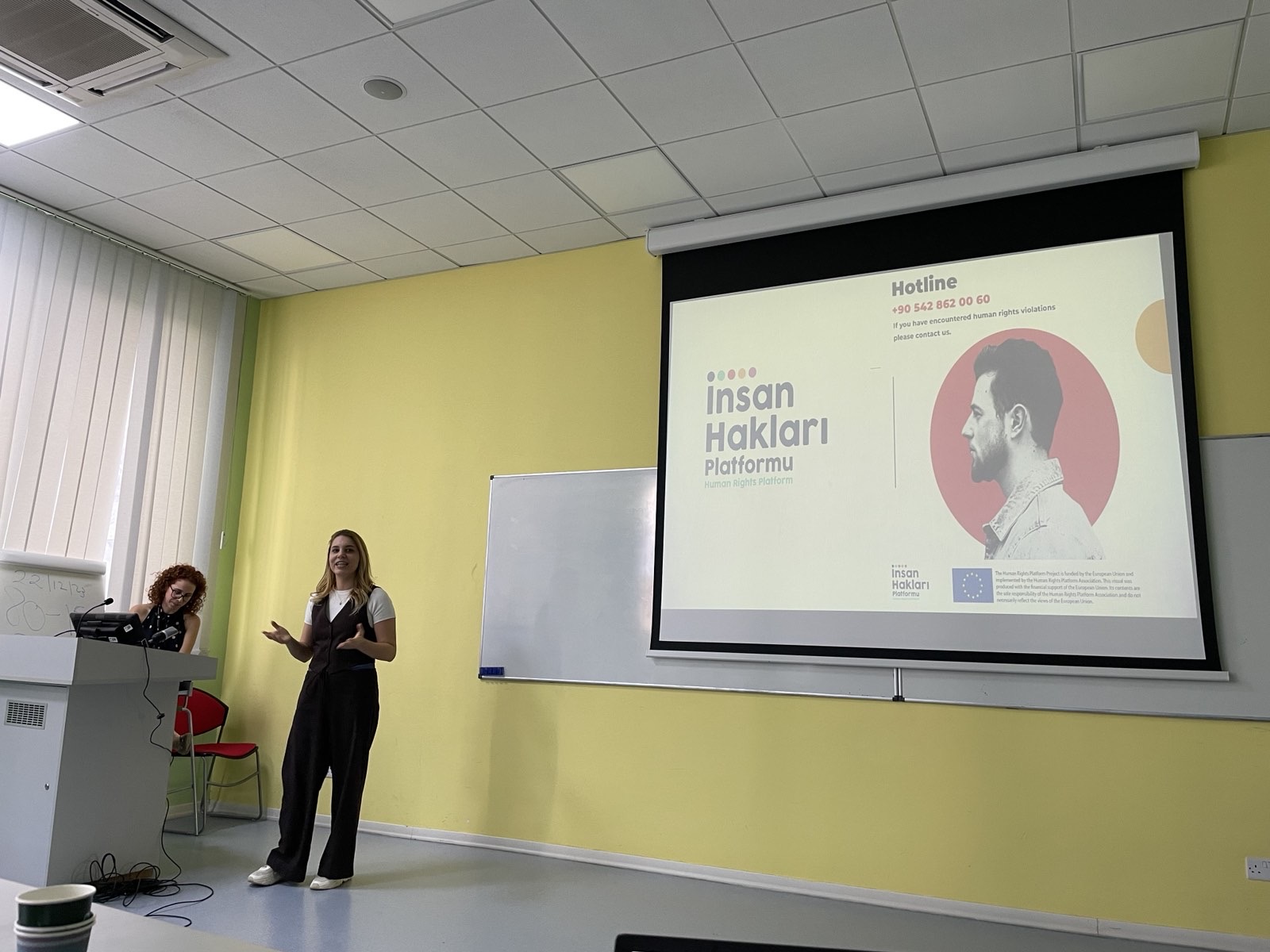
Focus Group on Active Citizenship
Early in the afternoon, a focus group on Active Citizenship took place open to representatives of the civil society and citizens locally based. The session was facilitated by Prof. Stéphanie Laulhé Shaelou, accredited mediator (English, Greek, French); Dr. Maria Tatsiou, accredited mediator (English, Greek); Ms. Evrim Peker (English, French); Mr Çağrı Çerkez (English, Turkish); Cemil Bayhanli (English, Turkish). Residents of the Pyla village, both permanent as well as students living in the halls of accommodation, participated in the focus group in order to identify what needs they have and what challenges they face in their everyday lives with the objective of identifying how Civil Society Organisations and UCLan Cyprus could assist in finding ways to resolve these issues. Some of the concerns included active ageing, environmental issues, speeding, and animal welfare. The participants of this focus group were invited to subsequent events hosted by UCLan Cyprus in the area of participatory democracy to discern how ideas could be implemented in practice and what stakeholders should be involved in their materialisation.
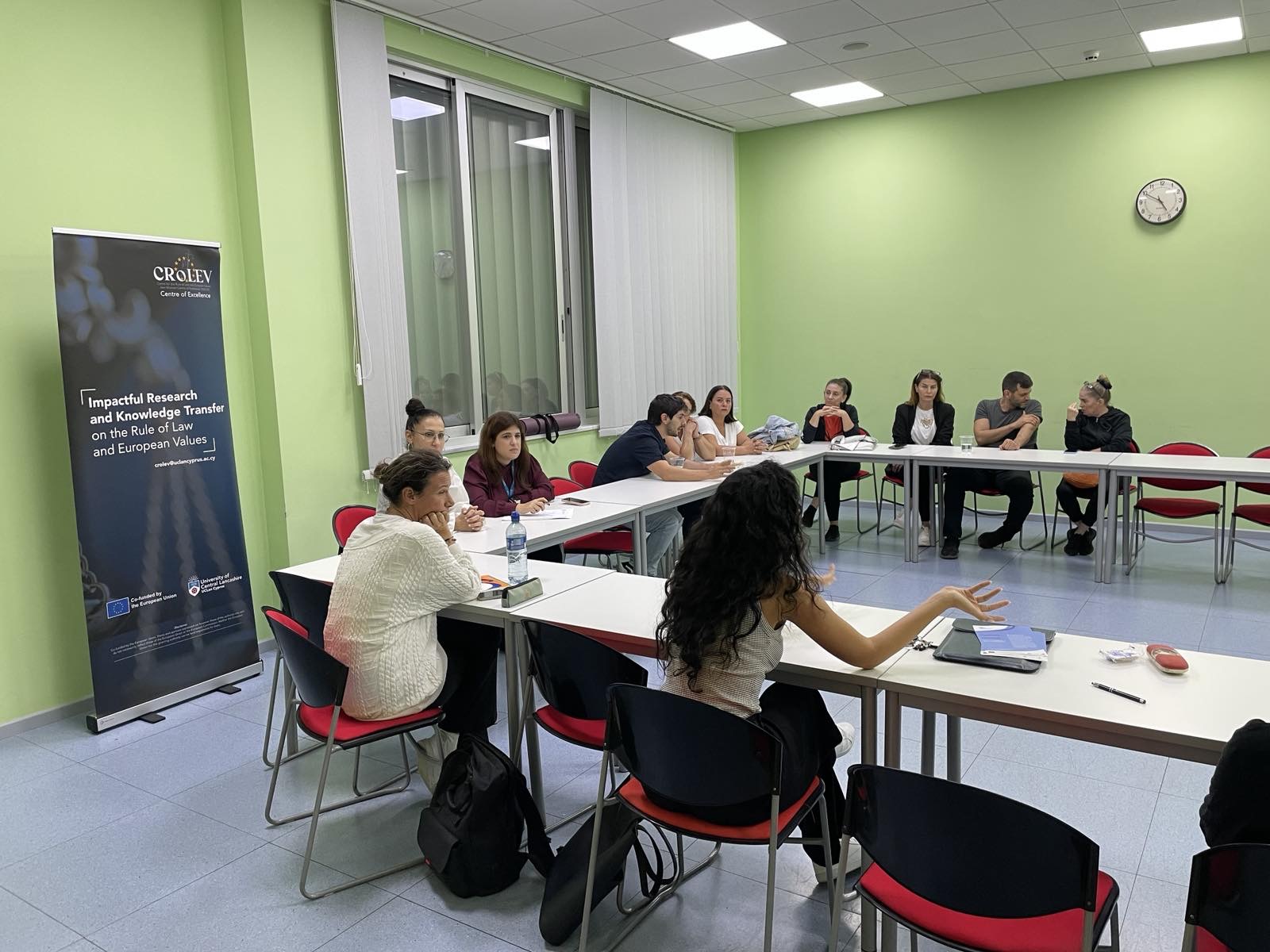
Yoga session, courtesy of the High Commission of India, Nicosia (Cyprus)
Following the end of the focus group session, participants to the Citizen Festival were invited to take part in a yoga session opened by Her Excellency, Ms. Madhumita Hazarika Bhagat, High Commissioner, and delivered by Dr. Kahad Bhagat. The session was dedicated to our former colleague Fotini who had been instrumental in bringing yoga to our campus as a way of connecting people. Moreover, the session proved to be a huge success as the participants of the Citizen Festival had the opportunity to relax and reflect in a very safe and relaxed environment. After deliberations, Dr. Bhagat also delivered some further yoga sessions during December open again to all participants of the Festival, including students and staff, as well as community members.
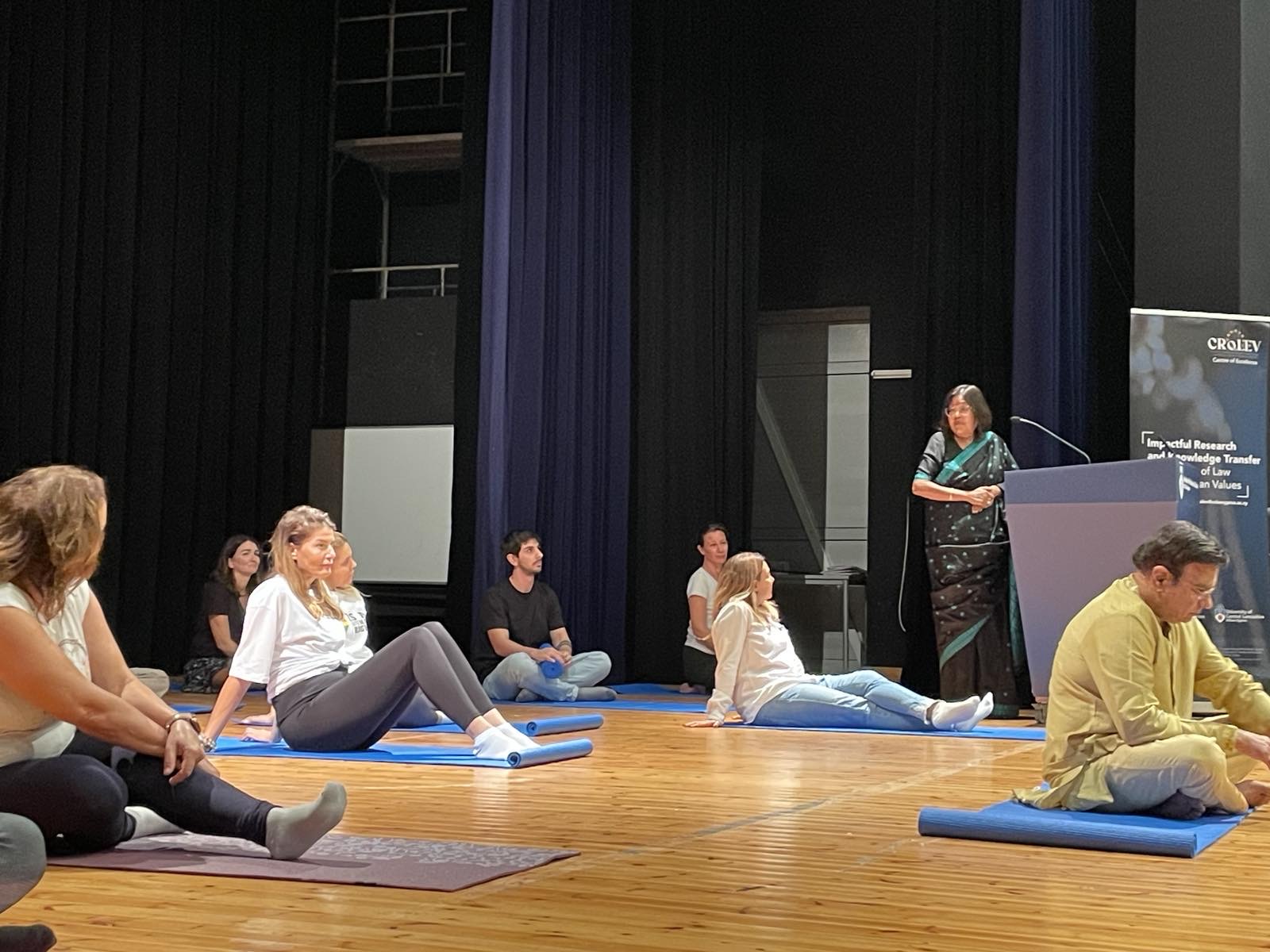
Finally, the day was concluded with a reception at the Lobby accompanied by Saxophone by LLB student Mr Victor Ehis Ohuimumwen.

